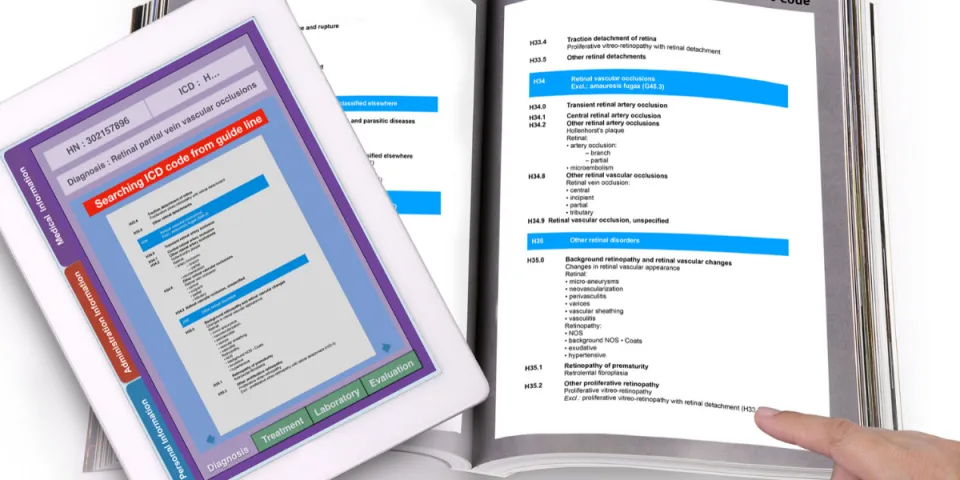Latest
5 Reasons Why You Should Consider a Career as a Medical Coder
Jun 22, 2020

If you’re interested in helping others in a healthcare-related field but would prefer to work a more administrative role that involves computers, code or data entry, a career in medical coding could be right for you!
Medical coders create and maintain electronic health records that follow guidelines for protecting patient privacy. Coders translate patient diagnoses and procedure codes into a computer system. Typically, coders work together with physicians, billers and other healthcare personal to ensure accurate costs and claims.
Here are five reasons why you should consider pursuing a career as a medical coder:
1. It’s a growing career.
According to the BLS, there is a predicted 9% growth for medical records specialists from 2022-2032, and the average annual salary is $53,690 per year ($25.81 per hour).*
Medical coding is a growing career for several reasons. As life expectancy increases, there is a larger aging population that needs to be served by the healthcare industry. Technology is also changing medical coding as there is an increased focus on the digitization of health records. This gives medical coders an advantage as healthcare implements these changes. Coders will already have the technical knowledge to ensure accuracy and increase efficiency as these changes are made.
2. You can get started quickly.
A lot of people assume it takes years to start a career in healthcare, but this is not always the case. At Herzing University, you can complete your diploma in medical coding in as few as 12 months and an associate degree in as few as 20 months. With Herzing’s online program and multiple start dates available, you’ll have the flexibility and convenience to potentially start when it’s best for you.
After completing either coding program, you will be prepared for the Certified Coding Associate (CCA) exam from the American Health Information Management Association.
Working in your career makes you also eligible for advancement for many healthcare business roles like medical auditing, compliance documentation improvement and other careers according to the AACP.
3. There are different work environments.
Medical coders are a vital part of the healthcare industry. With a diploma or degree in medical coding, you will have the opportunity to work in a variety of healthcare settings, including hospitals, doctor’s offices, nursing homes, outpatient facilities and home healthcare.
Just because medical coders work very closely with healthcare professionals does not mean that they only work in healthcare facilities. Some medical coders have the option to work from home. While many work-from-home coding positions are available, they might not be offered to entry-level workers. You might need to build up your work experience before you have the option to work from home.
4. Work schedules are consistent.
Unlike some healthcare careers, medical coders can work during regular business hours. Medical coders generally work a normal 40-hour workweek in most organizations. Coders occasionally work evenings and overtime in healthcare facilities.
5. You can be successful with the right skills.
You can succeed in a medical coding career with the right skills. For example, a good medical coder has great attention to detail and is organized, efficient and thorough.
One of the biggest challenges for medical coders is learning and becoming familiar with medical codes to correctly enter them into the computer system. While medical coders end up memorizing many codes, you don’t have to rely on your memory alone. There are many medical reference codes and software to help you process information as you enter it into the system.
Here are some other aspects to consider before pursuing your medical coding degree:
- It’s not the same as a medical biller. While medical billers and medical coders work closely with one another, they are not the same career. Medical coders maintain and enter a patient’s health records while medical billers submit claims to insurance companies for reimbursement and collect medical payment.
- You can make a difference. As a medical coder, you ensure that healthcare facilities operate efficiently by entering accurate data.
Ready to start your career as a medical coder? Explore Herzing University’s medical coding pathways to begin today.
Learn More About Our Medical Billing and Coding Program Options
Bureau of Labor Statistics (BLS), U.S. Department of Labor, Occupational Employment and Wage Statistics 2023 / Occupational Outlook Handbook 2022. BLS estimates do not represent entry-level wages and/or salaries. Multiple factors, including prior experience, age, geography market in which you want to work and degree field, will affect career outcomes and earnings. Herzing neither represents that its graduates will earn the average salaries calculated by BLS for a particular job nor guarantees that graduation from its program will result in a job, promotion, salary increase or other career growth.
Latest
Recent Blog Posts
Subscribe to our Newsletter
Get the latest news you need to know, from study hacks to interview tips to career advancement. Have it delivered right to your inbox biweekly.








